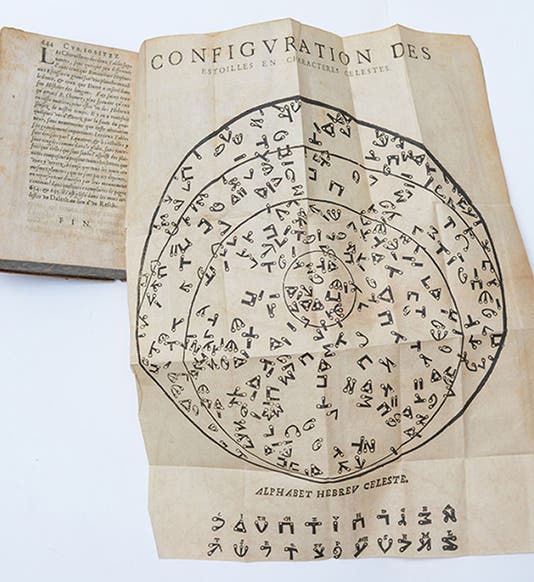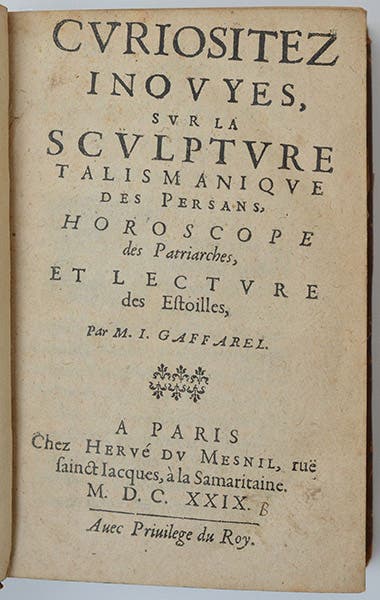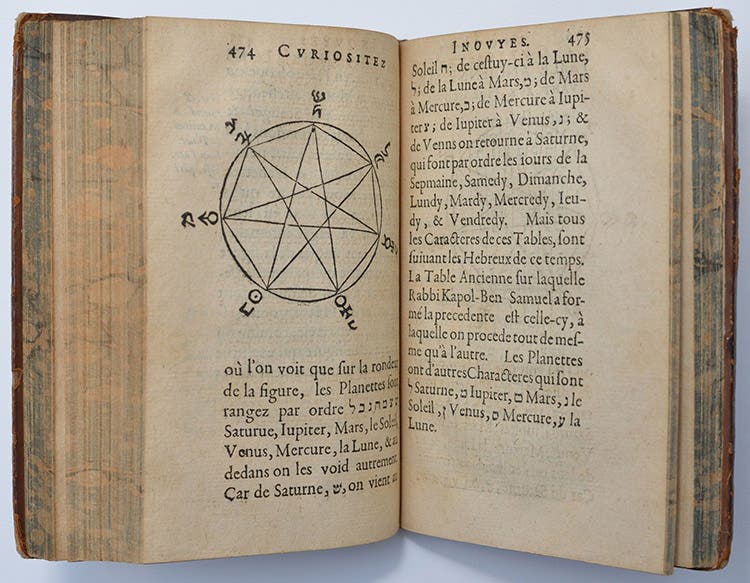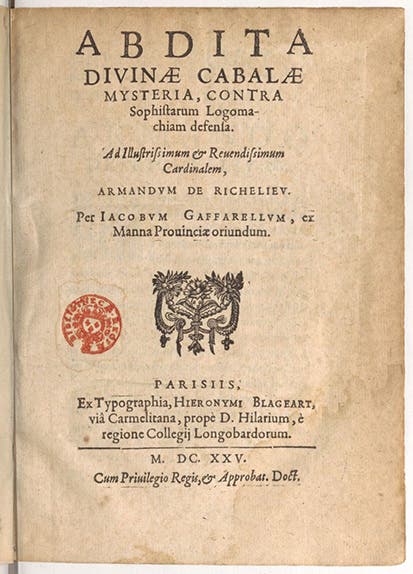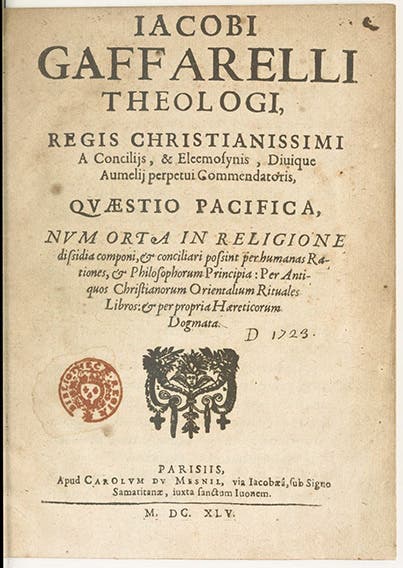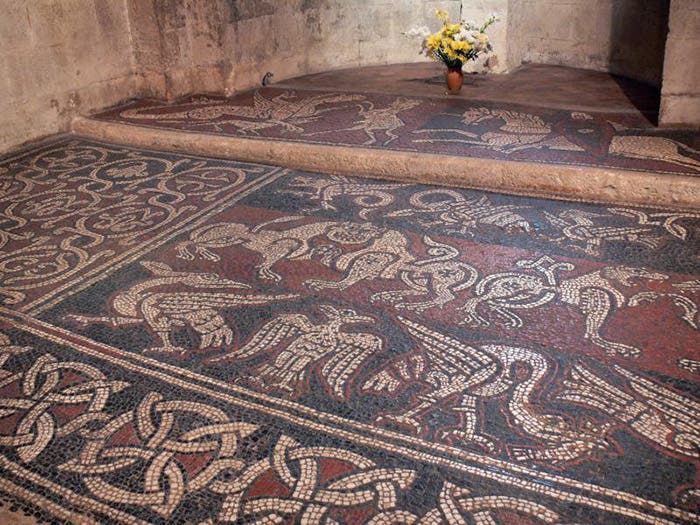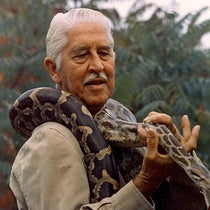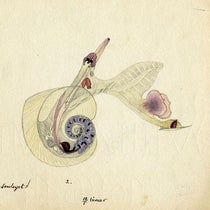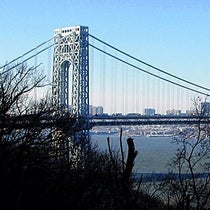Scientist of the Day - Jacques Gaffarel
Jacques Gaffarel, a French classical scholar and orientalist, died Dec. 1, 1681. Historians of science sometimes highlight individuals who do not really fit their times and seem to have appeared just to show that the evolution of ideas is in no way linear and deterministic. Jacques Gaffarel is one of these individuals who seem to belong to different periods, at the frontier between Renaissance and Modernity. A proficient Hebraist, skillful in oriental languages such as Persian and Arabic, he spent his life travelling between France, Italy and the Orient, collecting rare books for his patron, the all-powerful Cardinal Richelieu. Gaffarel’s interest in rabbinic and oriental culture, at a time when the majority of scholars only focused on Greek and Roman antiquity, accompanied a passion for talismans and occult knowledge. Extremely curious, trying to reconcile past and modern knowledge, Gaffarel shared many traits with the more famous and successful Athanasius Kircher, the prominent polymath and orientalist of the 17th century.
Gaffarel was born in 1601 in Mane, a little town in southeast France, not far from the important roads connecting France and Italy. De facto Gaffarel always lived between the two countries. He was a very successful student. Before the age of 25, he got a first PhD in theology from the University of Valence in France, a second PhD in canon law from the University of Paris, and was ordained as a Catholic priest. At the same time, he studied Hebrew, and one of his teachers was Philippe d’Aquin, a converted Jew who would oversee the edition of the Hebrew text for the Polyglot Bible of Paris (1628-1645). Cardinal Richelieu noticed this skillful young man and he sent him to Italy to collect rare books for his huge library.
The first part of the 17th century is often seen as an important time in the history of libraries. Rare books and manuscripts became more and more crucial for religious, political and scientific controversies, and extensive collections started to appear all over Europe. Trading of rare books and manuscripts became a political concern, and kings sent their men of confidence all across Europe to seek the most precious writings. Oriental writings were especially prized, since they could help to improve Biblical scholarship. From 1626 to 1639, Gaffarel made several voyages to Italy, Greece and perhaps the Levant, bringing back to Paris seventeen bales of Greek, Hebraic, Syriac, Aramaic, and Arabic manuscripts. He had connections with many personalities of Jewish communities, and in 1637 he gave the first edition of the Historia de gli riti hebraici of the Venetian rabbi Leon of Modena, the first comprehensive work about Jewish customs addressed to non-Jewish readers since Flavius Josephus and Philo.
Gaffarel was not only driven by a scholarly interest in oriental culture, but also by esoteric knowledge, especially Jewish kabbalah. This mystical reading of the Scriptures was often tied with a magical conception of Nature, as expressed at that time by the famous Rosicrucian Robert Fludd, whom Gaffarel defended in his controversy against the priest Marin Mersenne between 1623 and 1630. In 1629, Gaffarel published his most famous book, the Curiositez inouyes sur la sculpture talismanique des Persans, horoscope des patriarches et lecture des estoilles (Unheard-of Curiosities concerning the Talismanic Sculptures of the Persians, the Horoscope of the Patriarchs, and the Reading of the Stars), which would be edited several times and translated into English and Latin. This book presented Gaffarel’s interpretation of the ideas of ancient Hebrews regarding astrology and talismans, devoting long excerpts to the kabbalistic reading of the heavens and natural magic. Unsurprisingly, his book was condemned by the Sorbonne, and Gaffarel had to make a public retraction. To Gaffarel are also attributed many other treatises on kabbalah and esoteric knowledge, all of which were lost or destroyed after his death.
If his interests seem marginal at the time of Descartes, Galileo and Hobbes, Gaffarel was a close friend of several of the most prominent scholars of the time: Nicolas-Claude Fabri de Peiresc, the famous antiquarian; Tommaso Campanella, the philosopher; Pierre Gassendi and Ismael Boulliau, two leading astronomers; and Gabriel Naudé, considered the first important theoretician of modern library organization. Some of them were also known as leading figures of the movement of libertinage erudit, which could explain the frequent suspicion of heterodoxy directed against Gaffarel. These friendships highlight the ambiguities of academic civilities in the 17th century, and also the deep interest that many scholars shared for Oriental culture.
Gaffarel’s interest in other cultures was perhaps motivated by his hope to reconcile the wide variety of Christian beliefs. After a successful predication against the Calvinists in Grenoble in 1641, he was attacked for being too favorable to the Protestants. He defended himself in a book published in 1645, the Quaestio pacifica (The Question of Peace; fifth image), where he explored different ways to solve religious conflicts “through human reason and the principles of philosophers, through the ancient books of Eastern Christians which deal with rites, and through the dogma specific to the heretics”.
The last part of Gaffarel’s life is not known. He settled in the abbey of Ganagobie in Provence, where he had been appointed abbot by Richelieu in the 1630s, and continued its investigations. After his death on this day in 1681, he was buried in the choir of the abbatial church, under the wonderful medieval mosaics which can still be observed today (sixth image).
The Linda Hall Library does not yet own Gaffarel’s Curiositez inouyes, although they are looking to acquire a copy. The images shown here are from a copy now on the market, being offered by Földvári Books in Budapest.
Jean Sanchez, Doctoral candidate in History and Philosophy of Sciences, Lab. République des Savoirs, Ecole Normale Supérieure, University of Paris Sciences-Lettres, and Linda Hall Library Fellow. Please send comments or corrections to jean.sanchez@ens.fr.

